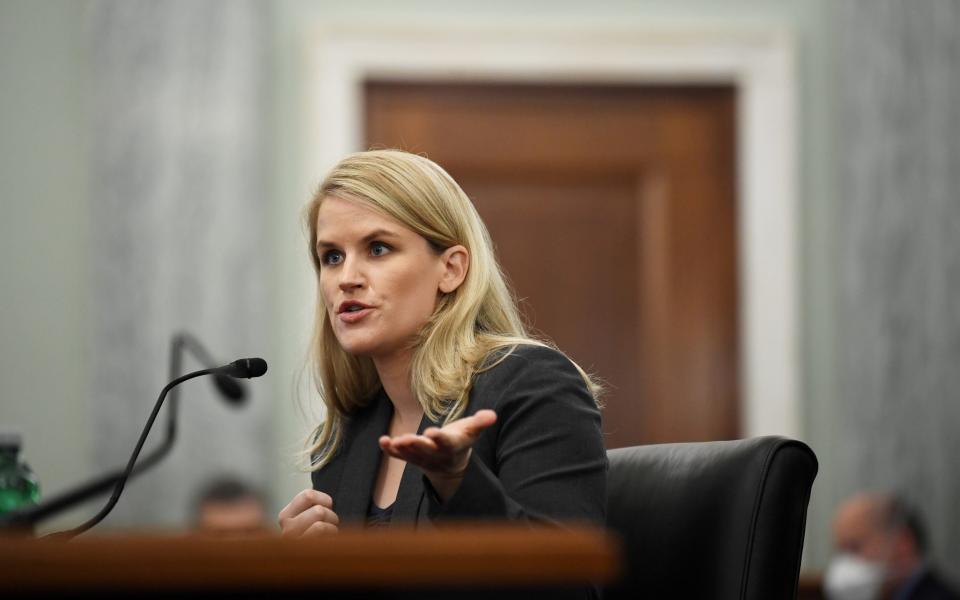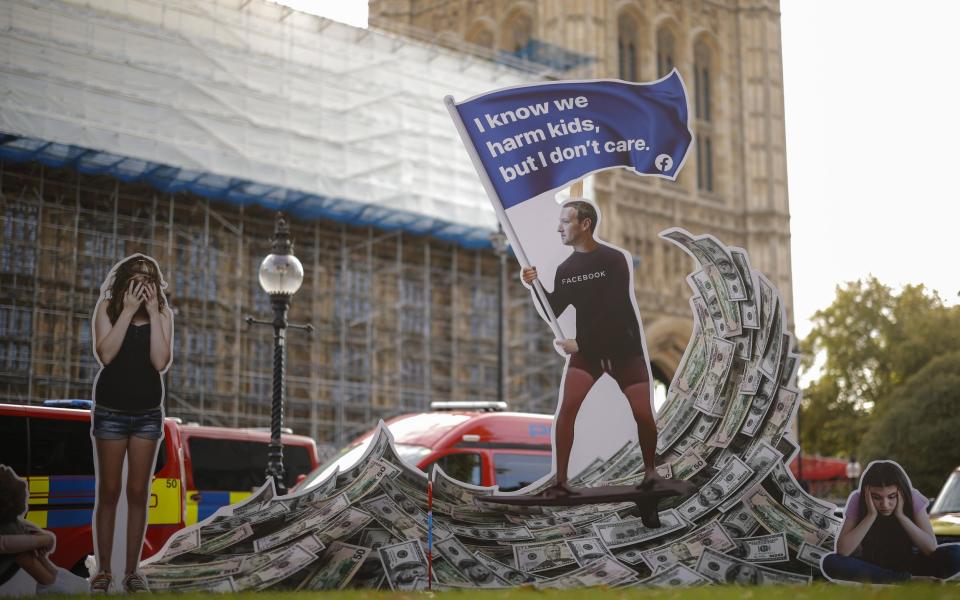Facebook ‘like cigarettes’ for teenagers, warns whistleblower

The Facebook whistleblower has said the company’s own research shows that its apps are “like cigarettes” for teenagers as they struggle to “regulate” their social media use.
Frances Haugen said a “startlingly high” number of teenagers use apps like Facebook-owned Instagram in “problematic” ways that could hurt their health or school performance.
Ms Haugen, who used to be an executive at Facebook before going public as a whistleblower earlier this month, is due to give evidence on her former employer to MPs in Parliament on Monday.
Ahead of that appearance, Ms Haugen sat down for a BBC interview with Ian Russell, the father of Molly Russell, who took her life aged 14 after viewing self-harm material on Instagram.
She said that Facebook research, much of which she has leaked in recent weeks, showed that the tech giant was aware of its impact on teenagers.
She said: “What’s so dangerous about having children under the age of 16, under the age of 18, using systems like Instagram is that Facebook’s own research shows that a startlingly high fraction of them exhibit what is known as ‘problematic use’, which means that they can’t regulate their own use of the product.
“It is kind of like cigarettes in that way, and they know it’s hurting their physical health, their schoolwork or their employment.”
During the interview, Mr Russell, who has previously described Instagram as “helping to kill his daughter”, revealed that Molly had written a note in the lead-up to her death saying she felt she had “spun out of control” and was living in “a trap”.
In the wake of Molly’s death, Instagram took steps to clean up self-harm content on its site, such as banning all graphic images of self-harm.
In the interview, he said he felt there “must be more” the tech giant, which he said has “massive resources”, could do to protect teenagers online.

Ms Haugen said: “Unquestionably, Facebook could be investing more resources in making the platform safer – they have made a series of choices to prioritise profits over people.
“On the most basic level right now there is no company in the world that has as much power as Facebook and as little transparency.”
Following the interview, a spokesman for Facebook said: “Our deepest sympathies are with the Russell family and anyone affected by these issues. We have never allowed content that promotes or encourages suicide or self-harm and we work with experts to continually update our policies.
“As a company, we have invested $13 billion (£9.4 billion) on safety and security since 2016 and have more than 40,000 people working in this area.”
Ms Haugen’s comments came after she warned in an exclusive interview with The Telegraph about the potential impact Instagram’s algorithms may have had on Molly.
She said Facebook’s research showed its algorithms could lead users from innocuous to more harmful content even if they are not actively seeking it, such as from posts about healthy recipes escalating to material on eating disorders.

 money
money 